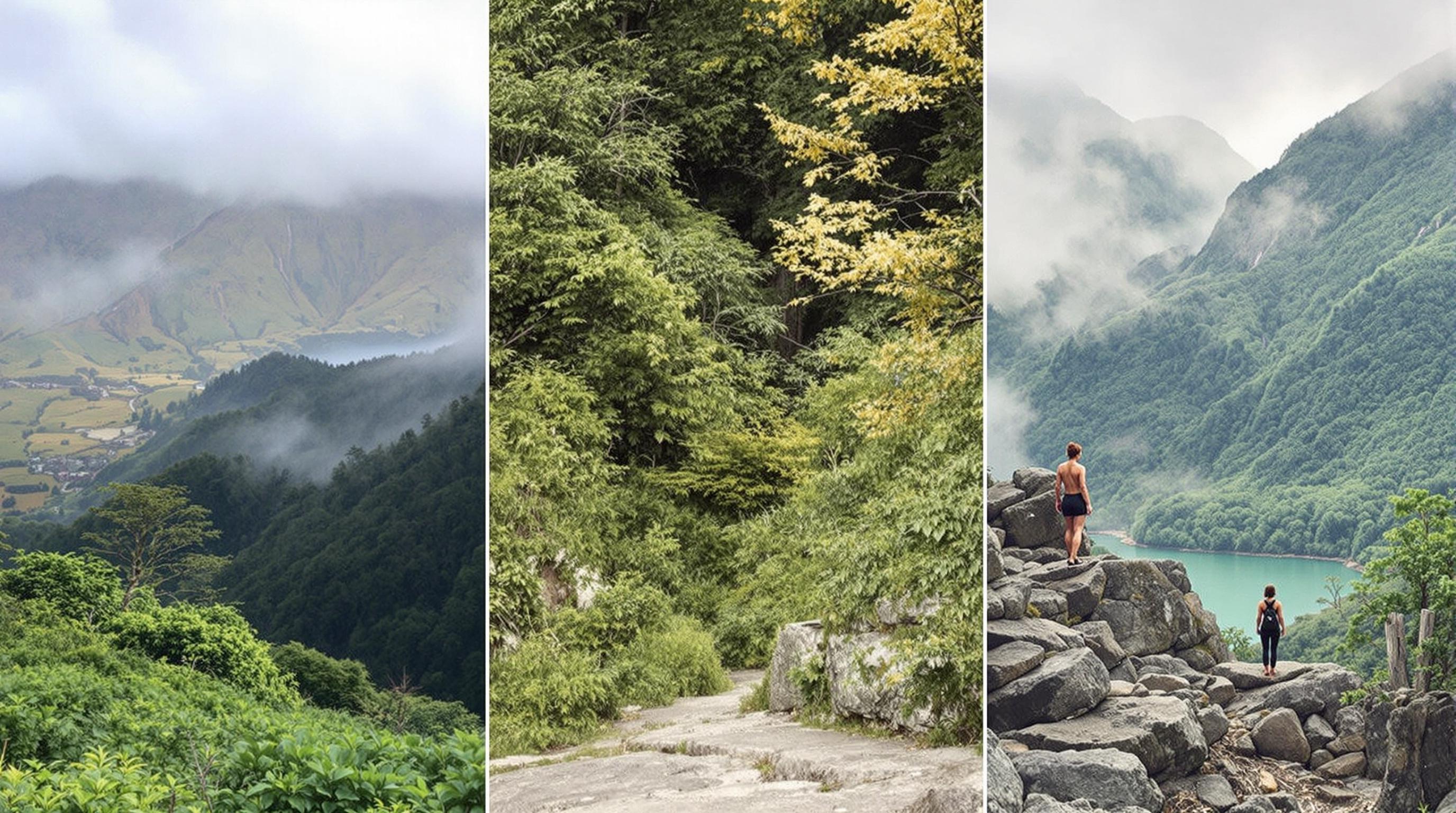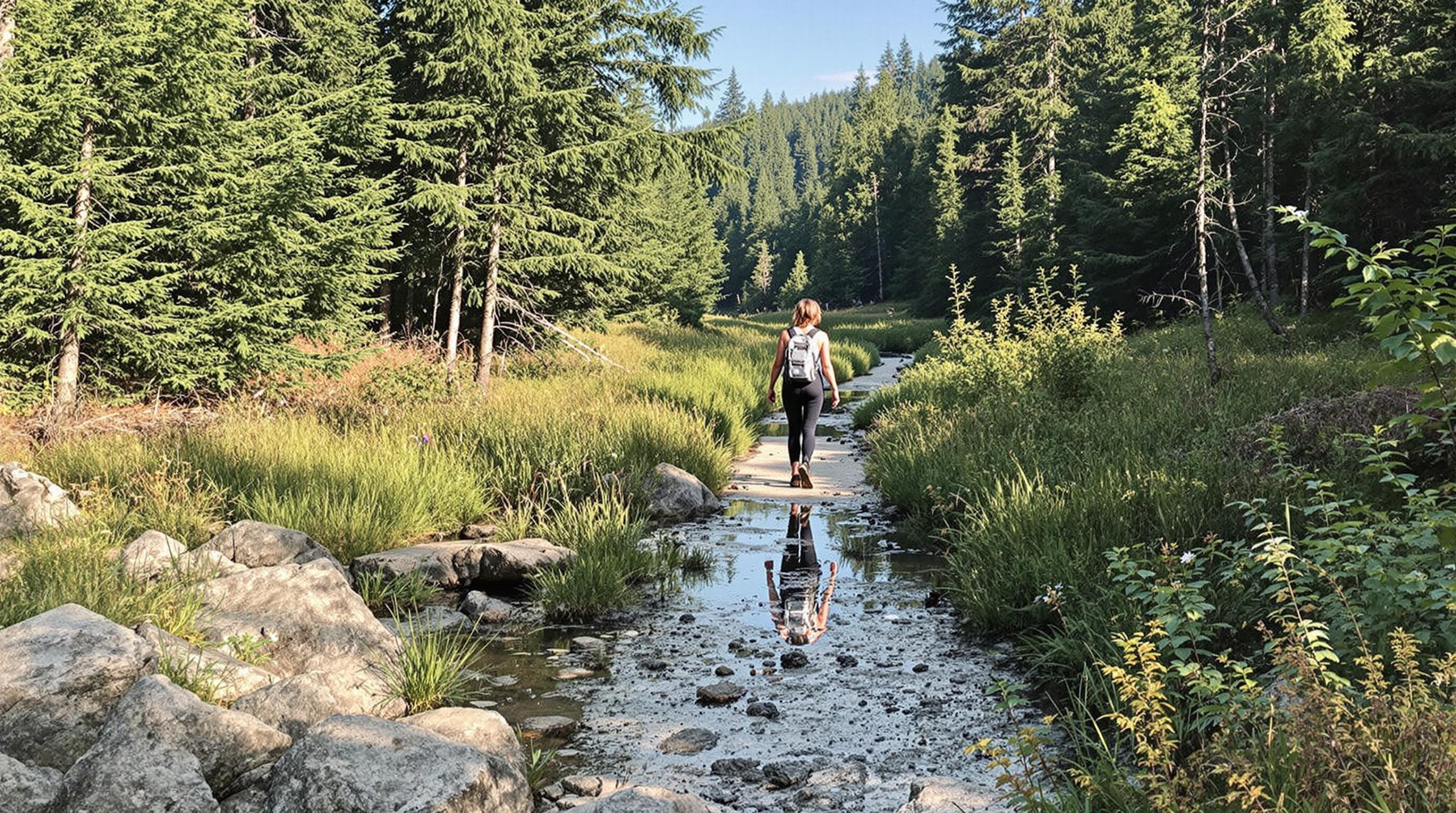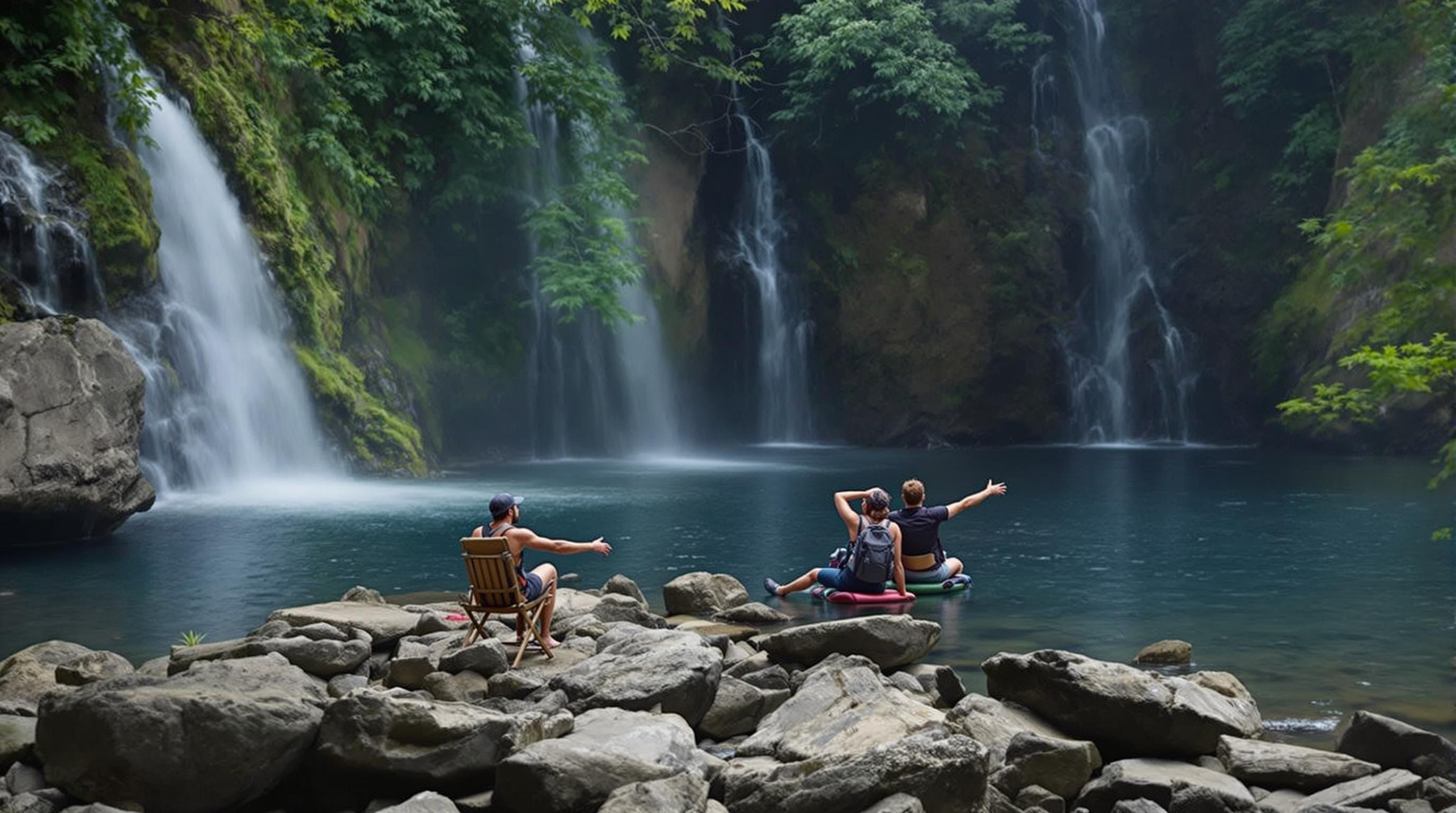Related Articles
- Uncharted Escapes: Navigating the Controversial Allure of Fringe Destinations and Their Untold Stories
- Uncharted Realms: The Surprising Intersection of Urban Legends and Adventure Travel in Offbeat Locations
- Curious Chronicles: Bizarre Transport Innovations Shaping Uncommon Explorations Across Unvisited Trails
- The Forgotten History of Eco-Adventuring: Learning from Indigenous Practices for Modern Exploration
- The Hidden Impact of Eco-Conscious Adventure Games on Environmental Education and Community Resilience
- Uncommon Routes: The Unexpected Appeal of Ghost Town Hikes in Eco-Friendly Exploration
Unearthing Nature's Secrets: The Surprising Role of Eco-Conscious Travel in Spiritual and Wellness Journeys
Unearthing Nature's Secrets: The Surprising Role of Eco-Conscious Travel in Spiritual and Wellness Journeys
Eco-conscious travel offers a transformative journey that reconnects travelers with nature and fosters mindfulness, balancing personal well-being with environmental stewardship. By exploring how sustainable practices enhance spiritual and wellness experiences, we uncover the profound impact of our choices on both the planet and ourselves.
The Rise of Eco-Conscious Travel
In recent years, the travel industry has witnessed a significant transformation, where eco-conscious travel has become more than just a trend; it's a movement. According to a report by the Global Wellness Institute, the wellness tourism sector was valued at $639 billion in 2017 and is projected to reach $919 billion by 2022 (Global Wellness Institute, 2018). As travelers become increasingly aware of their environmental footprint, they seek destinations and experiences that align with their values and foster spiritual growth.
The Intersection of Nature and Wellness
Imagine standing atop a verdant hill, the air crisp and infused with the scent of pine. Beyond the physical rejuvenation of your body from the hike, the immersion in nature provides a restorative experience that transcends the mundane. Numerous studies demonstrate that nature exposure can reduce cortisol levels, alleviate anxiety, and promote overall well-being (Kaplan & Kaplan, 1989). Eco-conscious travel naturally lends itself to these experiences, as it often requires travelers to engage with unspoiled environments deeply.
A Journey Through the Mind and Spirit
Total immersion in nature is one of the key drivers of spiritual awakening. When travelers prioritize eco-conscious choices, they often find themselves in settings that encourage introspection and connection. For instance, yoga retreats in Costa Rica frequently incorporate nature walks and meditation overlooking stunning landscapes, often leading participants to discover new layers of themselves.
Case Study: The Forest Bathing Phenomenon
One increasingly popular practice is “Shinrin-yoku,” or forest bathing, a concept that originated in Japan. This practice involves soaking in the atmosphere of the forest, and studies indicate it can reduce stress and boost immune function (Li et al., 2008). Various eco-tourism operators worldwide now offer forest bathing experiences, allowing travelers to enhance their wellness journeys while advocating for nature preservation. Travelers are not only nurturing their own spirits but also supporting the conservation of these vital ecosystems.
The Mental Benefits of Eco-Conscious Travel
Eco-conscious travel serves as a balm for the mind. A report by the University of Exeter highlights that spending just 120 minutes a week in nature can significantly improve health and well-being (White et al., 2019). Therefore, when embarking on that eco-friendly trek in the Andes or a mindful canoeing adventure in Canada, one is not merely seeking the thrill of exploration but also actively creating mental space free from the noise of daily life.
Sustainable Choices That Enhance Experience
Humor me for a moment and consider this: what if going green could lead you to something more profound than just a fancy Instagram post? Choosing eco-lodges, engaging in local community initiatives, and being mindful of your carbon footprint can significantly deepen your travel experience. By actively participating in sustainable practices, travelers often find themselves immersed in local cultures, discovering traditional healing methods, or connecting with artisans who weave their spirituality into their creations.
Example: Mindfulness in Eco-Lodges
Take, for example, the eco-lodges of Belize that provide unique wellness experiences ranging from sunrise yoga by the beach to guided rituals with local shamans. Such attributes enhance the spiritual aspect of travel, creating lasting memories and connections far beyond the physical environment. Not only are travelers elevating their well-being, but they are also fostering a symbiotic relationship with the land and communities they engage with. This relationship embodies the essence of eco-conscious travel.
Bringing It All Together: The Science of Green Travel
For those who love statistics, here's another one for you: a meta-analysis of research published in *Environmental Psychology* shows that nature exposure directly correlates with increased happiness and life satisfaction (Hartig et al., 2014). The more travelers can integrate nature into their journeys, the more likely they are to return rejuvenated in body and mind. Careful planning can lead to discoveries that redefine one’s understanding of self and influence their everyday existence.
Environmental Stewardship: A Spiritual Duty
Many spiritually inclined travelers see their eco-conscious choices as a duty to the planet. By adopting sustainable practices like zero-waste travel, supporting local economies, and volunteering for conservation efforts, they contribute positively to the earth for future generations. An engaged traveler often feels a renewed sense of purpose upon returning home, inspired to advocate for environmental protection and holistic living.
Engaging with Local Cultures: Beyond the Tourist Trail
Digging beneath the surface to connect with local communities offers yet another dimension to wellness journeys. Here, engagement becomes multifaceted—through cooking classes with local chefs, guided eco-tours showcasing indigenous practices, or participation in local festivals. These experiences not only illuminate cultural rituals but also forge a deeper connection with the land and its people.
Humor in Cultural Misunderstandings
Of course, cultural immersion is not always smooth sailing—like that time a friend attempted to meditate with a tribe in Thailand and ended up accidentally elbowing a monk in the face during a gesture meant for peace! But these moments, while potentially embarrassing, create invaluable stories and bonds that further enrich the journey. After all, who doesn’t love a little comedy amidst the solemnity of self-discovery?
The Role of Technology in Eco-Conscious Travel
In this interconnected world, technology plays a substantial role in promoting eco-conscious travel. Apps like ‘EcoTrip’ or ‘Green Traveler’ allow adventurers to find sustainable transport, eco-friendly accommodations, and local activities. This technological aspect can significantly enhance your wellness journey by taking the stress out of planning—because who needs that clutter when they’re seeking inner peace? Plus, there’s data suggesting that tech-savvy travelers exhibit increased engagement with sustainable practices (Doherty et al., 2020).
Final Reflections: The Everlasting Impact of Eco-Conscious Travel
As we step into the future, we're left with a lasting question: how do we want our travel experiences to shape both our lives and the world around us? While no one has all the answers, the concept of eco-conscious travel reminds us that every journey holds potential not just for self-improvement but also for contributing to the greater good. Each mindful decision made while traveling—whether through sustainable choices or deep connection to nature—creates ripples that extend beyond individual experiences.
In conclusion, eco-conscious travel is more than a facet of wellness; it's a transformative journey steeped in spirituality, mindfulness, and respect for our planet. As you contemplate your next adventure, consider how each step can unite your physical exploration with healing and growth, embracing the profound secrets nature has to offer.





